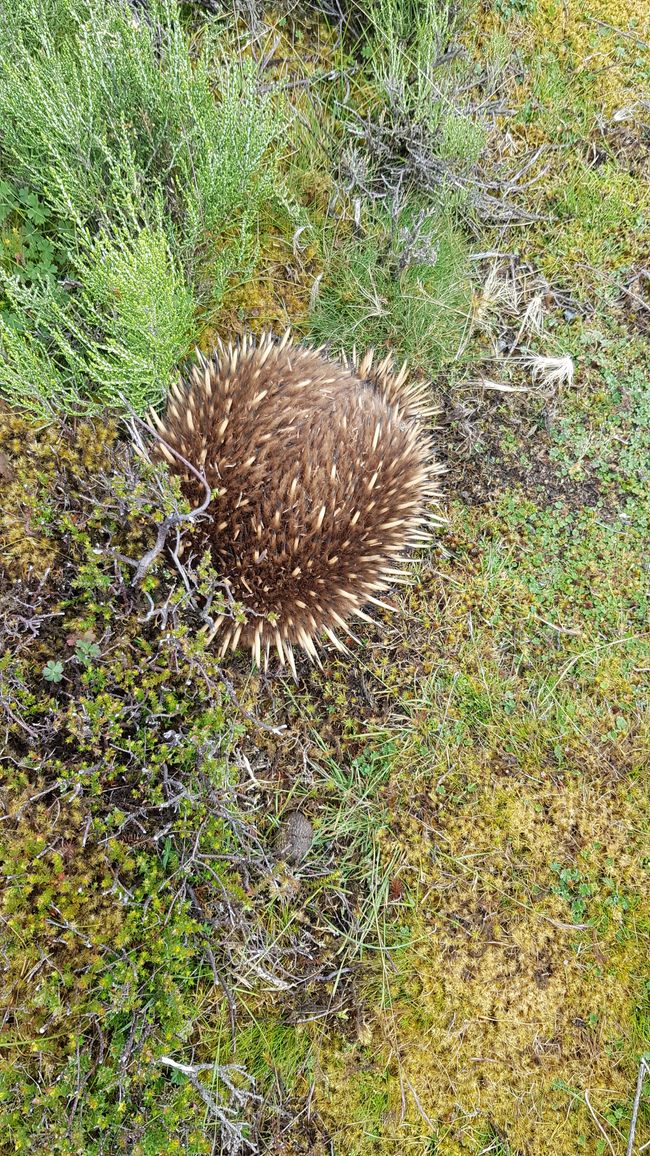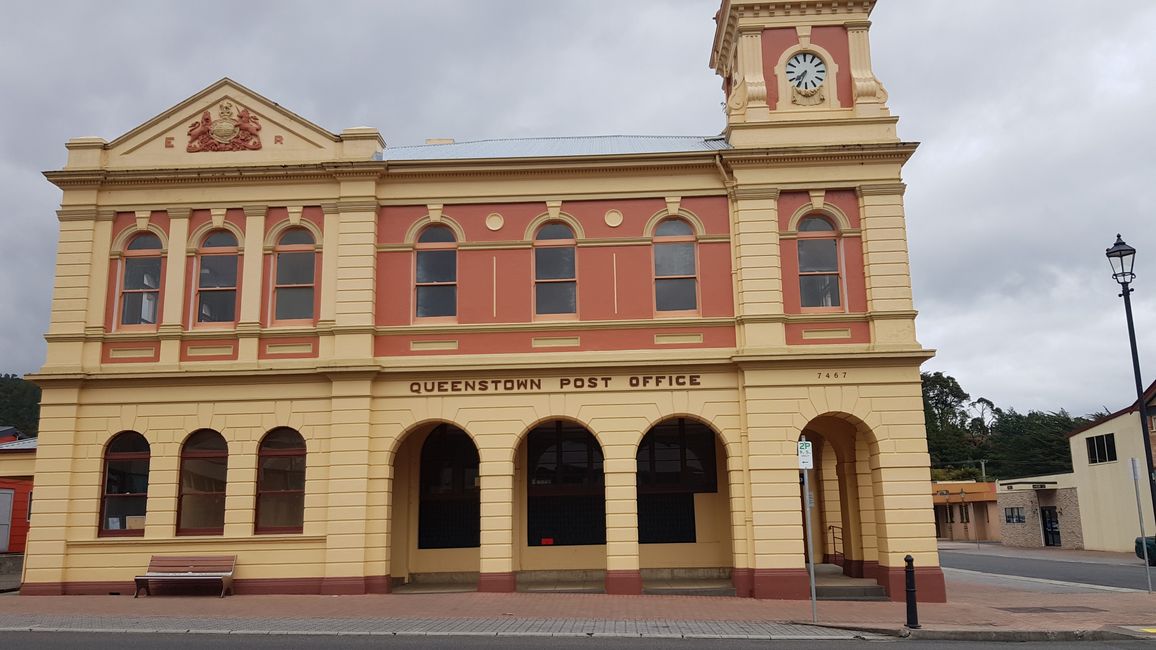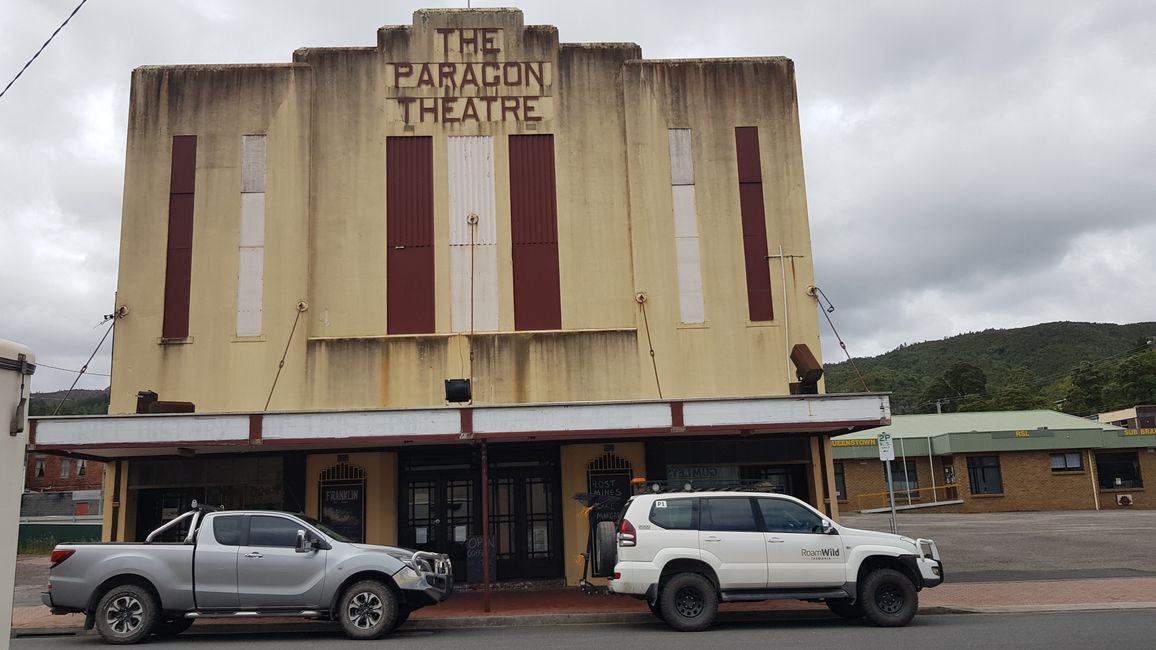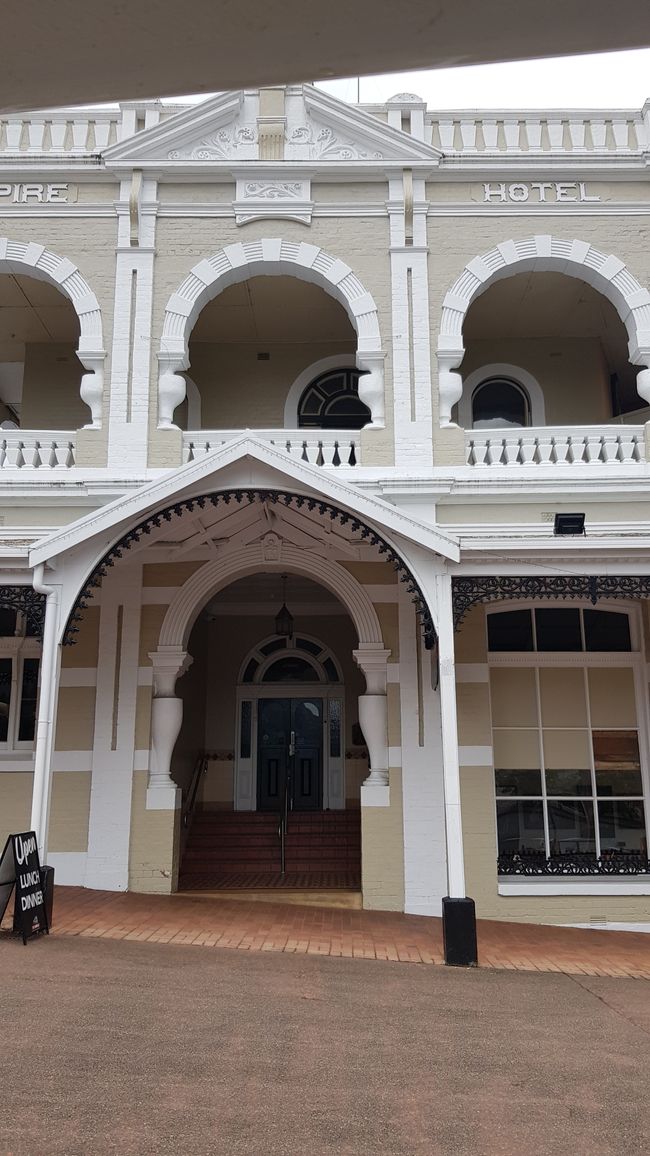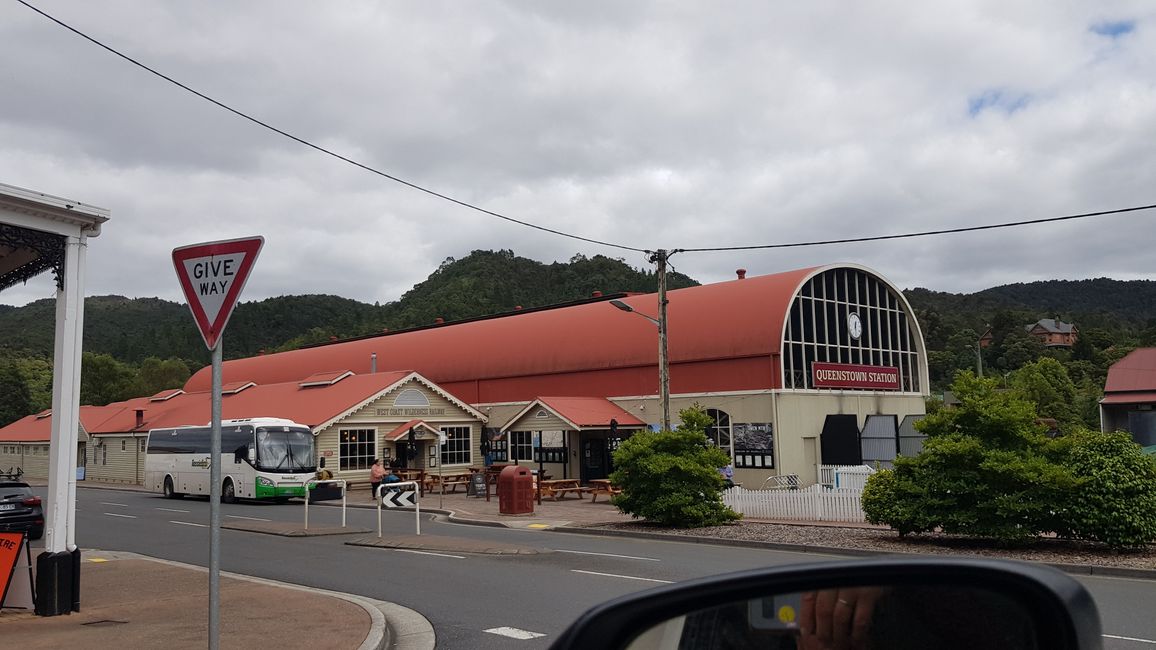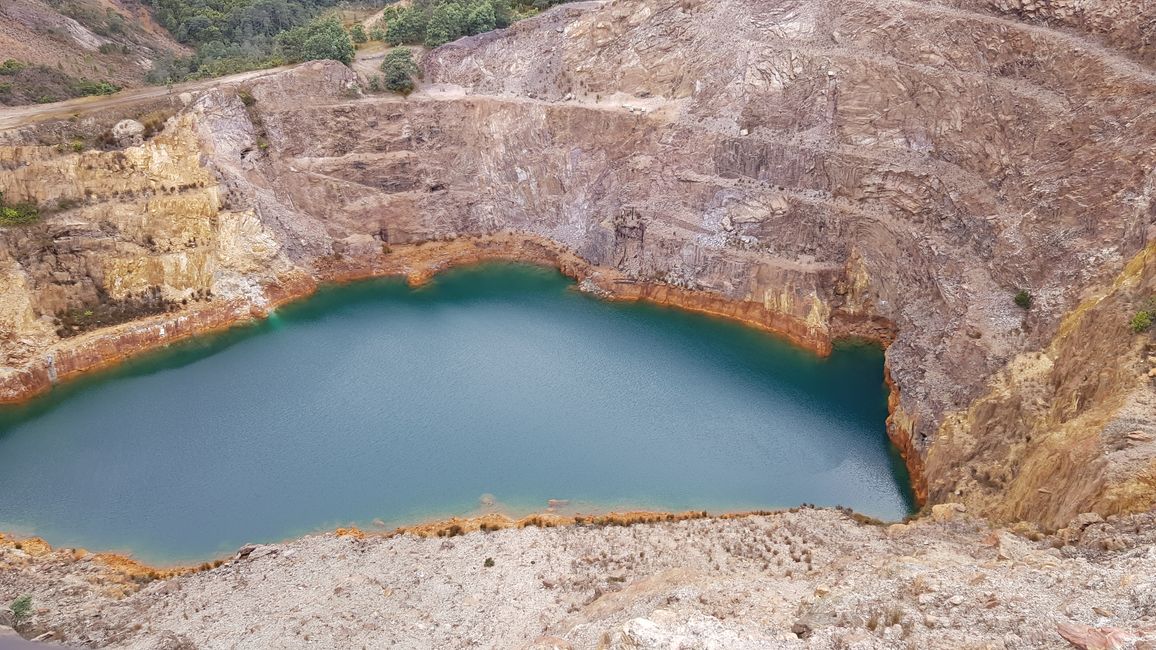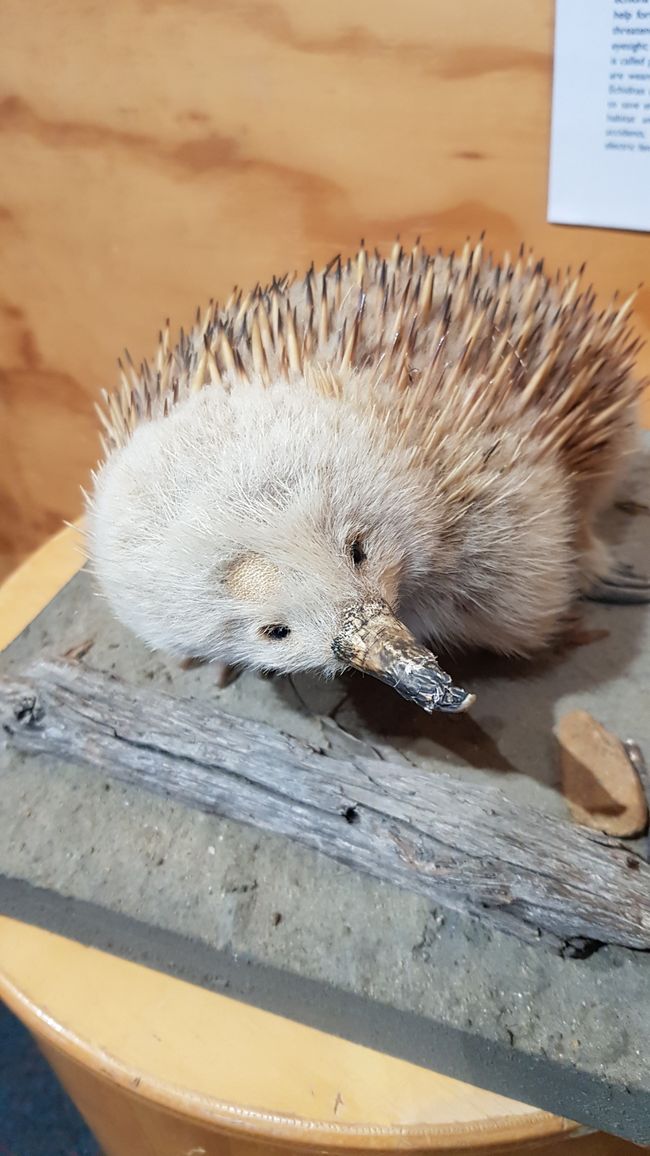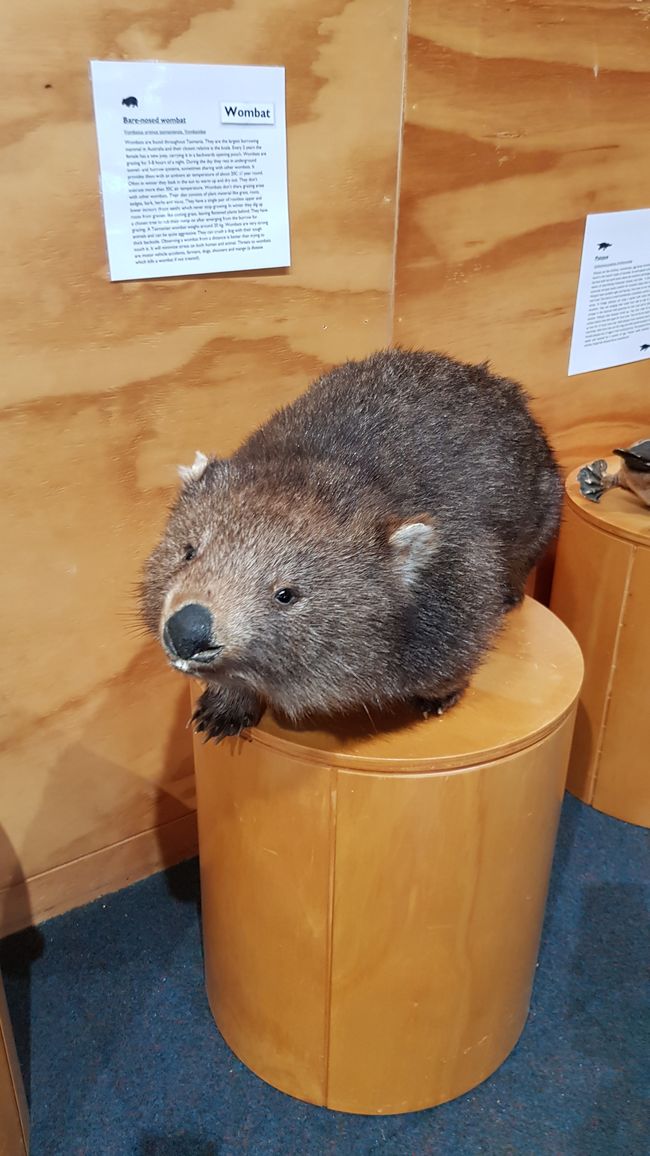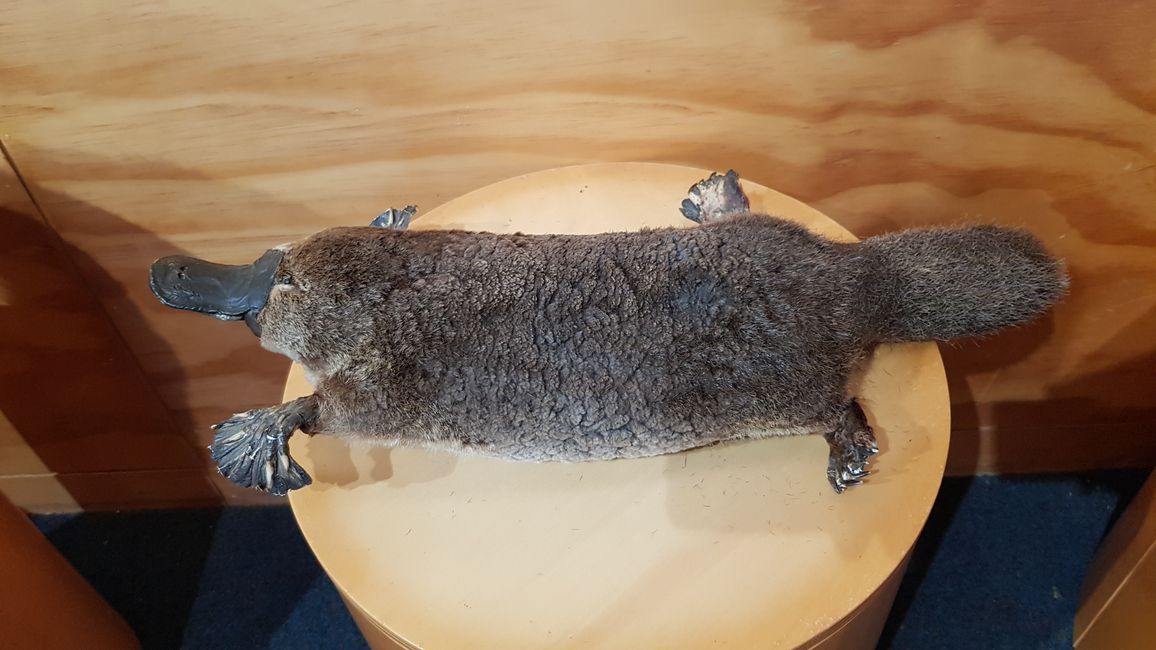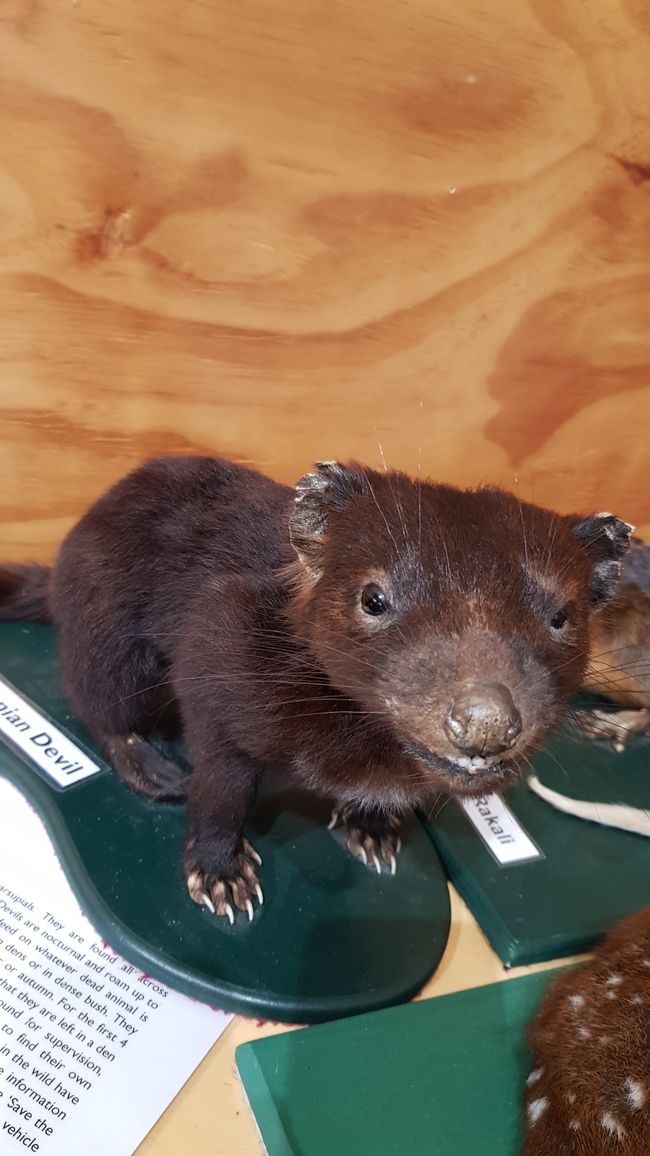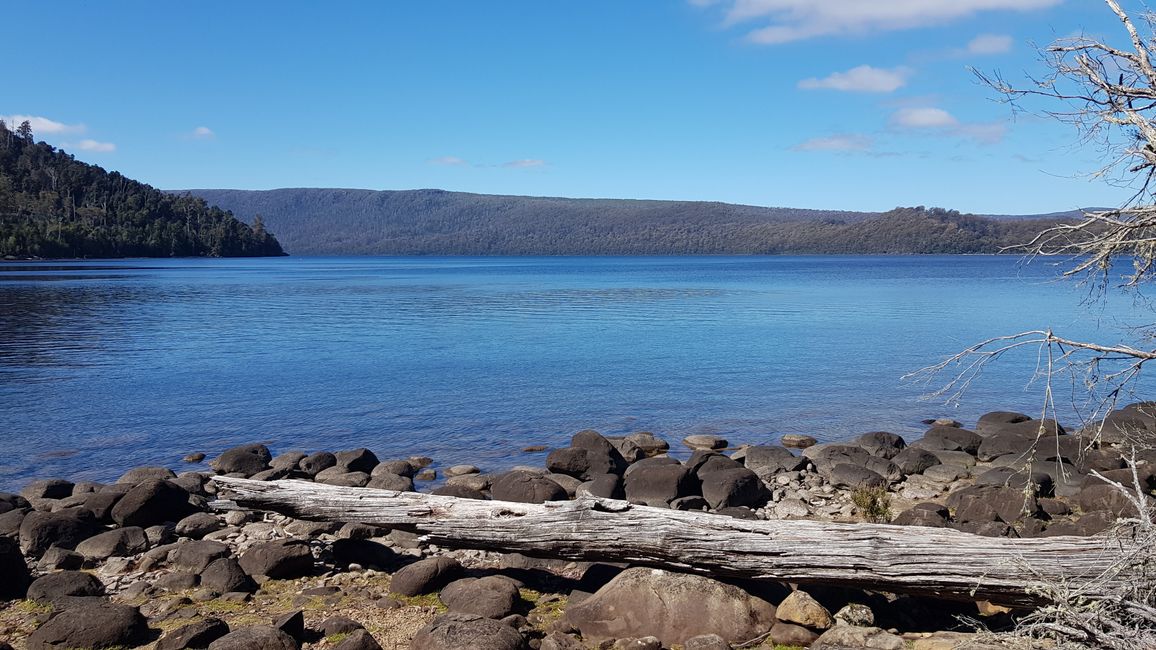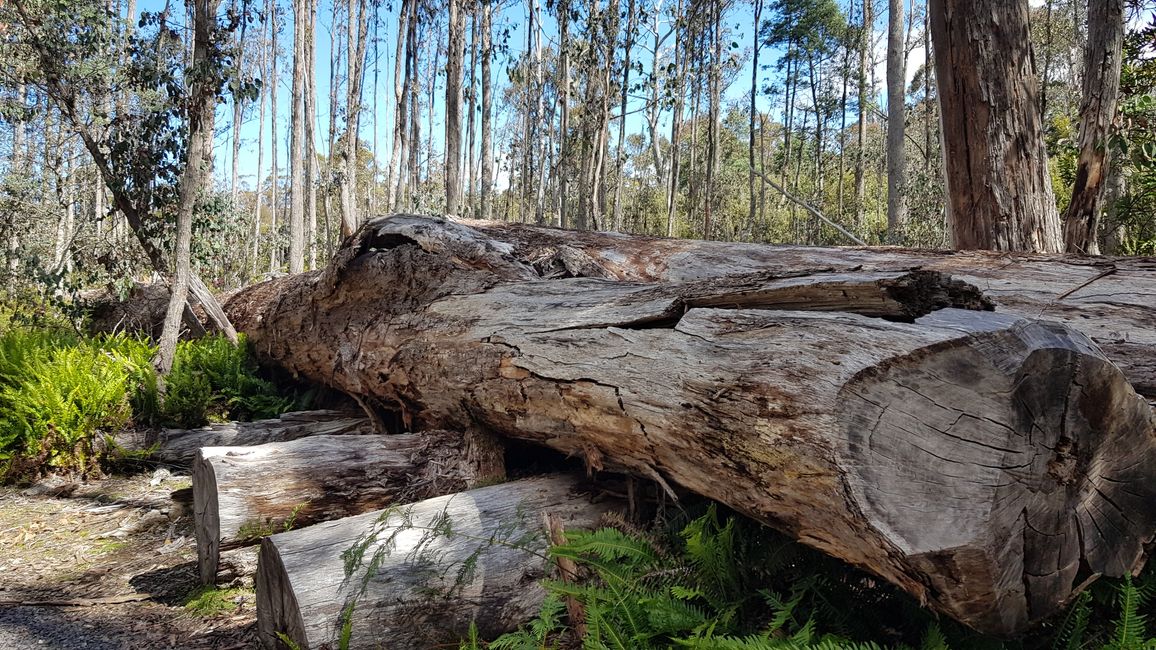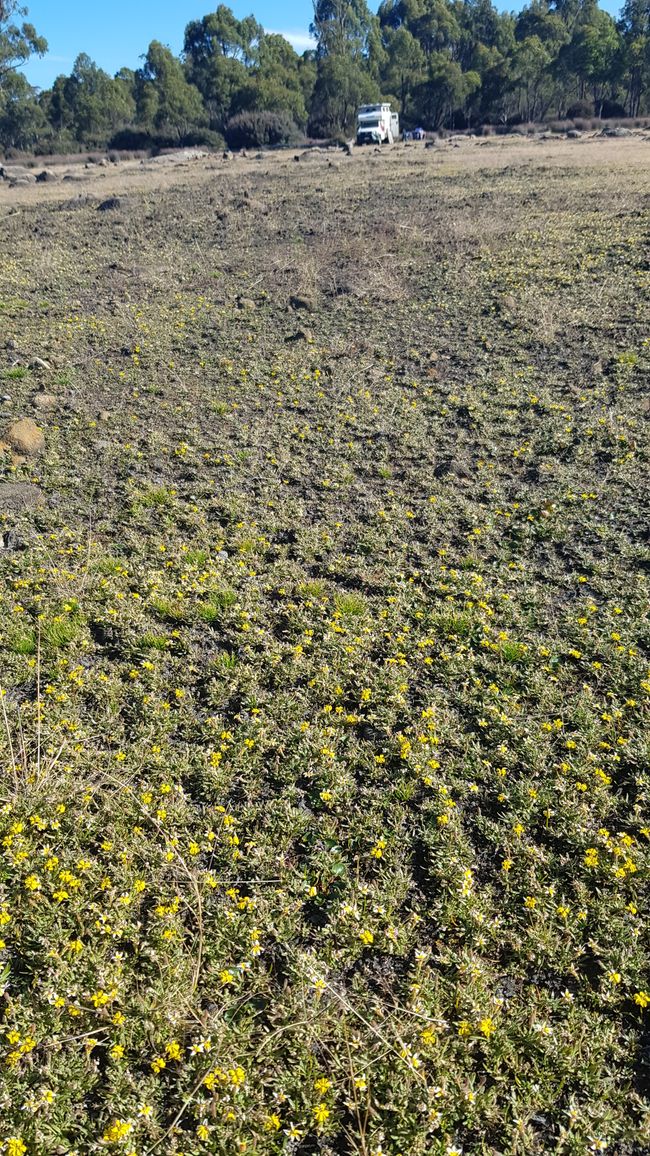05/02/2023 from Cradle Mt. NP to Lake St. Claire (same NP)
Diterbitkan: 06.02.2023
We are up early again, it's 8 degrees and people are walking around as if it were winter, I also have my red hat on, but I have showered with my hair and I don't want to catch a cold. On the way to a lookout on Cradle Mt., which we didn't visit yesterday due to low-hanging clouds, I spot an echidna running on the roadside, we stop as soon as possible and walk back. However, it has recognized us as potential enemies and quickly burrows back in. We need to change our strategy. At the lookout, it is explained that this landscape has not changed since several glaciers passed through here, and that is truly impressive. On the way to the southern part of Cradle Mt. and Lake St. Claire NP, we pass through Queenstown. A mining industry developed here around 1900, which has had a significant impact on the cityscape today. While the Art Deco Theater, Grand Empire Hotel, and old train station still stand and are operated as tourist attractions, the environmental damage caused by the mines near the city is clearly visible. They are even said to have changed the local climate. The counterpart to the unchanged nature in the north, here is the massive human intervention in the search for mineral resources. On the way to Lake St. Claire, we visit a large crater that was formed by copper mining and is now filled with water. Not only here, but also on information boards, mining accidents are reported. Meanwhile, it has become much warmer, the sun is shining. And suddenly and unexpectedly, wombats run on the left side of the road, two of them, we stop and reverse, but the little guys have disappeared into the thickets so quickly that the memory remains. 2 wombats still on life.
The southern part of the NP is just as well developed as the northern part, offering hiking trails for the busy hiker, as well as day and week tour suggestions to the guests. Today we hike through a sparse eucalyptus forest, then through a cold rainforest, and finally to some observation points for the platypus. It lives here in the lake. But it takes a lot of quietness to see it, and the hikers are always loud. In the meantime, we have reconciled with Tasmania Island, the sun is shining and it is warm. That will change again in the evening when the sun sets, but that doesn't matter. Today we found a campsite located by a currently dry lake. We are not alone here. Our pillows and blankets are drying in the sun. It's a great feeling to be here.
Jawab
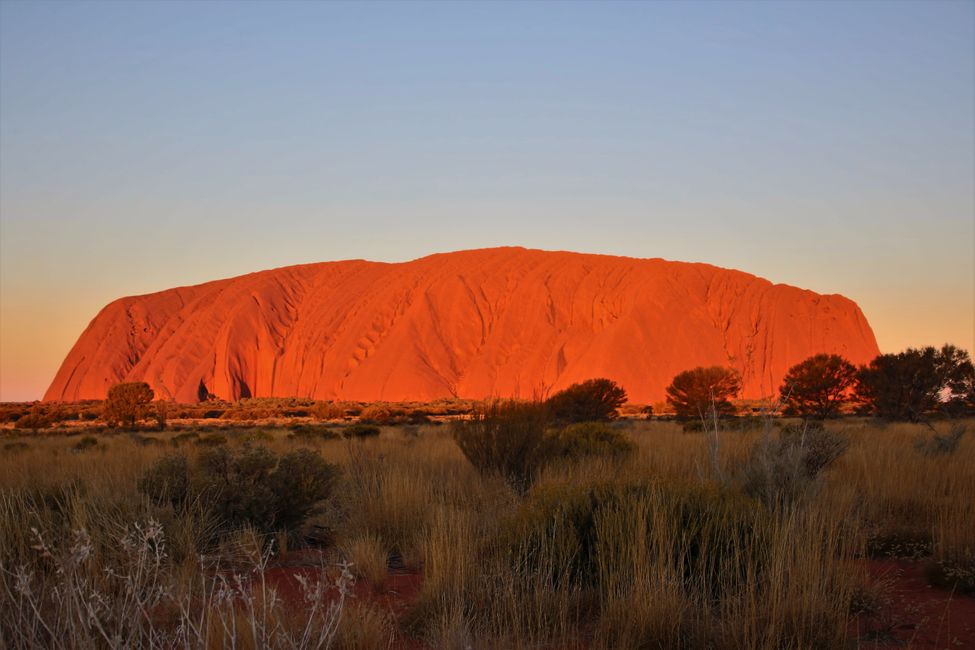
Laporan perjalanan Australia


